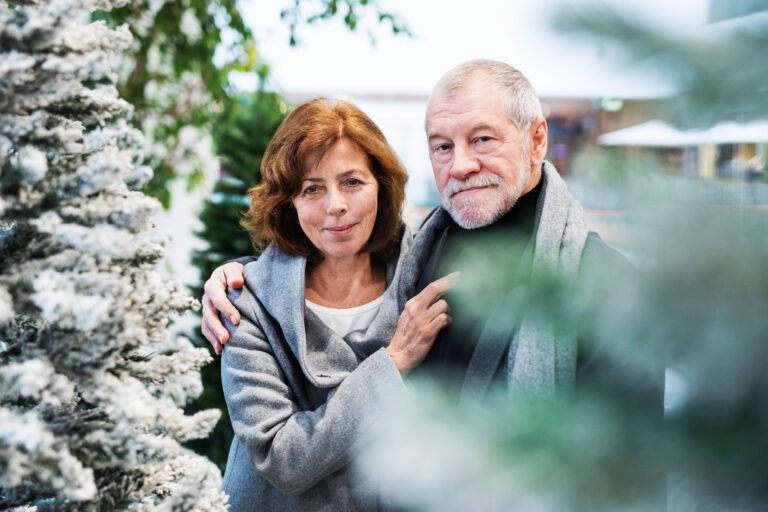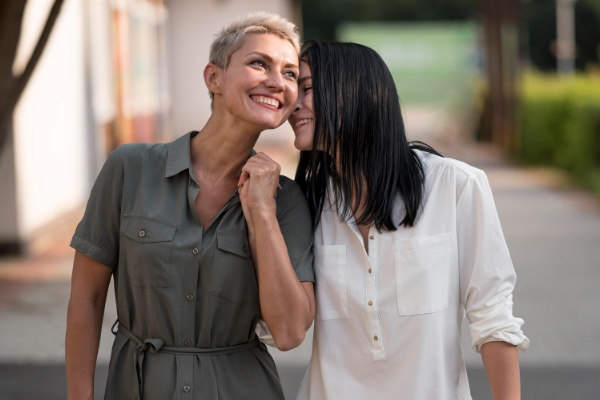In London, many older people search for a new partner through platforms such as SeniorMatch in a bid to gain companionship and happiness. Whilst such platforms offer convenience for older people, proper communication and judgement are still vital in the process of finding and identifying an ideal partner. This article will look at how to communicate effectively with a potential partner on SeniorMatch and how to determine if this is the ideal partner to help older people in the London area build strong and satisfying relationships.
Initial Contact: Developing a Communication Strategy
1. Set Clear Expectations: Before beginning to communicate with a potential partner, older adults should first clarify their expectations in the relationship. This includes what is expected of a partner in terms of personality, interests, lifestyle and values. Clear expectations can help to be more focused in the communication process to screen for the right match.
2. Use Open-ended Questions: In initial communication, using open-ended questions can help to understand what the other person is really thinking and feeling. For example, ask ‘What are your favourite activities?’ instead of ‘Do you like going to the cinema?’ Such questions can lead to more information and help assess compatibility.
3. Sincerity and Transparency: Sincere communication is the basis for building trust. During introductions and exchanges, the older person should be truthful in describing his or her life background, interests, and expectations, and encourage the other person to do the same. Transparent communication helps both parties to build a foundation of honesty and reliability from the start of the relationship.
Go Deep: Effective Communication Skills
Share Life Experiences
In-depth dialogue should include the sharing of each other’s life experiences. This not only helps to understand each other’s backgrounds, but also to discover common ground. Sharing one’s life stories, experiences and significant moments can help build an emotional connection and lead to a better understanding of each other’s values and outlook on life.
Pay Attention to Each Other’s Words and Attitudes
It is important to pay attention to the words and attitudes of the other person during the communication process. The choice of language and the way of communication can reflect the character and attitude of the other person. For example, being positive about life, hopeful about the future, or showing respect and concern are all key factors in assessing the suitability of the other person.
Have Face-to-face Interactions
While online communication offers convenience, face-to-face interactions provide a truer sense of the other person’s reactions and emotions. Arranging an initial meeting, such as meeting at a café or taking a walk, can help both parties get a more intuitive understanding of each other’s personalities and habits.
Assess Partners: Identifying the Ideal Partner
1. Assess Shared Values: Shared values are the foundation of a long-lasting relationship. Older adults should assess whether potential partners share similar life philosophies and values. For example, whether there are similar family values, views on health and preferences on lifestyle. Shared values can help both partners coordinate and co-operate better in life.
2. Understand Each Other’s Habits: Understanding each other’s habits can help determine whether or not a long-term relationship is appropriate. For example, knowing about each other’s daily activities, eating habits and socialising styles can help assess whether their lives can be integrated. Compatibility of living habits is an important factor in building a harmonious relationship.
3. Examine Mutual Life Goals: When determining the suitability of a potential partner, it is important to discuss their future life goals. This includes expectations in areas such as life plans for retirement, financial arrangements and family structure. Ensuring that both partners share common goals and expectations in these important areas can help avoid future conflicts and disagreements.
4. Observe How the Other Person Handles Problems: During the communication process, observing how the other person handles problems and conflicts is also key to assessing their suitability. Someone who is able to deal with problems in a mature and rational manner is usually more likely to build and maintain a healthy relationship. Paying attention to how the other person reacts in the face of stress and challenges can help determine their suitability as a long-term partner.
Build Relationships: Maintaining Good Communication
Maintain Open Lines of Communication
Maintaining open lines of communication remains vital after a long-term relationship has been established. Both parties should discuss each other’s feelings, needs and expectations on a regular basis to ensure that problems in the relationship are addressed in a timely manner. Regular communication helps keep the relationship stable and healthy.
Deal with Disagreements and Conflicts
Disagreements and conflicts are inevitable in any relationship. Older people should learn to deal with them. For example, adopting the methods of active listening, understanding each other’s position and finding common solutions can effectively defuse conflicts and maintain harmony in the relationship.
Give Each Other Space
Despite the need for close communication and interaction in a relationship, appropriate personal space is also necessary. Respecting each other’s independence and allowing each other to maintain their own interests and activities without interfering in the other’s life can help maintain a healthy relationship.
Create a Better Life Together: Continuity of Endeavour and Care
1. Maintain the Romance of the Relationship: Even in mature relationships, it is important to maintain the romance. Scheduling regular romantic times like special dates, celebrating holidays or simple surprises can keep the relationship fresh and vibrant. Romantic gestures help enhance emotional intimacy and fulfilment.
2. Focus on Each Other’s Well-being: Focusing on each other’s well-being and health is essential in a relationship. The older person should endeavour to be supportive and attentive to their partner’s needs, be involved in each other’s lives, and provide the necessary help and support. Shared concern for each other’s well-being contributes to a loving and caring relationship.






